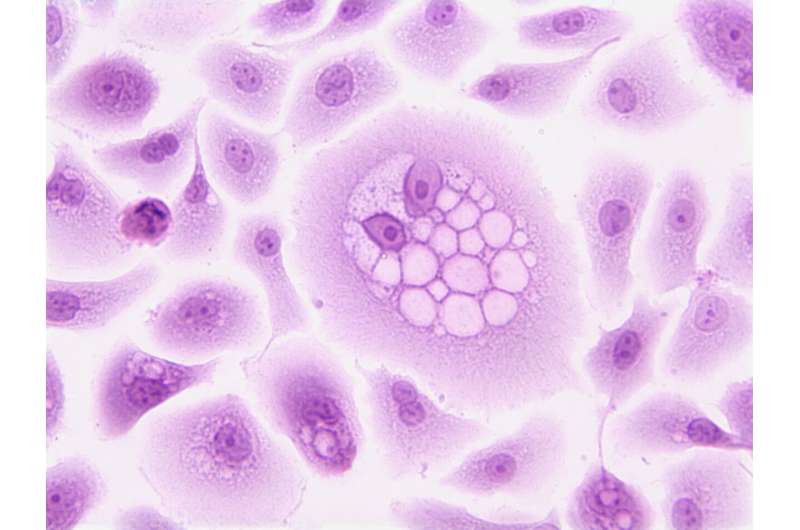This article has been reviewed according to Science X's editorial process and policies. Editors have highlighted the following attributes while ensuring the content's credibility:
fact-checked
peer-reviewed publication
trusted source
proofread
Study hints at how cancer immunotherapy can be safer

Cancer immunotherapy has revolutionized treatment of many forms of cancer by unleashing the immune system response against tumors. Immunotherapies that block checkpoint receptors like PD-1, proteins that limit the capacity of T cells to attack tumors, have become the choice for the treatment of numerous types of solid cancer.
However, the introduction of PD-1-blocking agents can often result in T cells attacking healthy tissues in addition to cancer cells, causing severe, sometimes life-threatening, side effects that can blunt the benefits of immunotherapy.
A new study published by researchers at Yale School of Medicine reveals new insights into how PD-1 functions to maintain healthy tissues, findings that can help scientists predict, treat, or even prevent the side effects of PD-1 blocking immunotherapies.
The study was published June 21 in the journal Nature.
"While we know why blocking checkpoint receptors boosts anti-cancer immune responses, we don't understand why these immunotherapies also cause adverse events in normal organs," the authors write. "However, the emergence of these adverse events suggests that checkpoint receptors like PD-1 are involved in the constant protection of healthy tissues from immune attack in normal individuals."
Currently doctors are not able to predict which individuals are likely to develop such side effects and which healthy organs will be attacked as a consequence of immunotherapy. Side effects may prompt doctors to either suspend immunotherapy or prescribe immunosuppressants, with negative consequences on the anti-cancer effects of immunotherapy.
"Our findings show for the first time that PD-1 has a critical role in preventing T cells from attacking normal tissues in healthy individuals and may one day help find ways to reduce or prevent the side effects of immunotherapy," said Yale's Nikhil Joshi, associate professor of immunobiology and senior author of the study.
For the study, a team led by Martina Damo, an associate research scientist in the Joshi lab, developed new generation mouse models to address the role of PD-1 in preventing T cells from attacking healthy skin. They mimicked immunotherapy by blocking PD-1 and found mice developed some of the same skin disorders observed in cancer patients treated with PD-1 blockers.
The data in mice were corroborated by analysis of skin biopsies obtained from cancer patients under treatment at the Yale Onco-Dermatology Program at Smilow Cancer Hospital at Yale New Haven, which is directed by Dr. Jonathan Leventhal.
"Our data in mice and humans support the hypothesis that checkpoint receptors like PD-1 function as gatekeepers of tissue homeostasis by allowing the presence of functional T cells in peripheral tissues without immunopathology," Damo said. "We propose that PD-1-blocking immunotherapies interfere with these physiological regulatory functions, thus resulting in adverse events. This study lays the ground for the future development of improved immunotherapies that avoid adverse events."
More information: Nikhil Joshi, PD-1 maintains CD8 T cell tolerance towards cutaneous neoantigens, Nature (2023). DOI: 10.1038/s41586-023-06217-y. www.nature.com/articles/s41586-023-06217-y


















